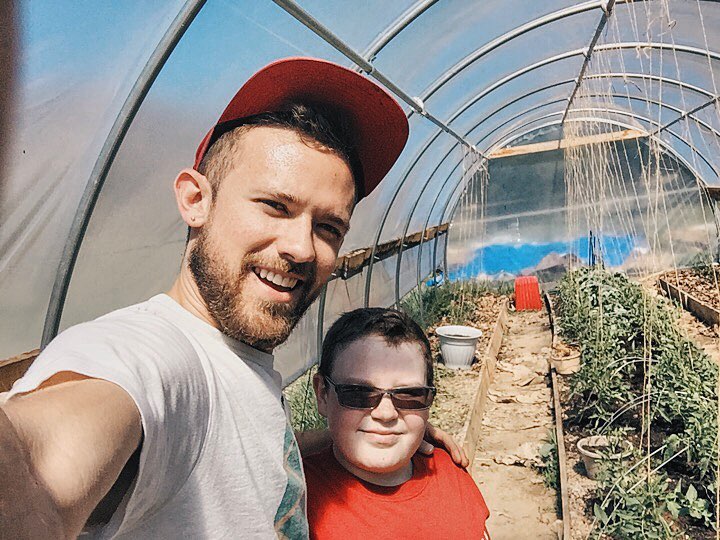By Robert Kell of Sprouting Hope in Marion, VA
In college when folks would ask me about where I grew up I would start with brown beans, pickled beets, and cornbread. I would detail my grandparents’ garden and the ways in which they were skilled at preserving food. I felt that beyond the statistics of what people knew of Appalachia, food was the heritage of my home. Like many other places around the world, food here is cultural, food is life, food is the political and social tool that forms the backbone of those statistics.
My grandparents had a 30ft by 20ft brown patch of dirt in their yard they would transform into a beautiful garden. Folks driving down the road would stop and compliment them on their beans and cabbage. I remember spending hours picking various veggies and watching my grandmother pickle, can, and cook them. Over time though, my grandparents grew older and canned less and less and eventually stopped putting out a garden altogether. No one was there to take over. None of my siblings or parents had the time to grow food. In fact, outside of my grandparents’ house, I don’t remember eating fresh food. I have no memories of watching my mother or father cook fresh vegetables. Sure, we ate canned green beans and peas bought at the grocery store or frozen carrots and broccoli, but nothing picked and served that day. Here we are, two generations removed, and totally dependent on Wal Mart and Food City for our food.
I recently moved back to Marion and stumbled on Sprouting Hope. I couldn’t believe it! Marion had its own community garden and anyone and everyone was welcomed to come out and learn about growing food and better yet, could take home fresh food. On my second visit I brought my youngest siblings with me. They are 9 and 10. As far as I know, neither of them had ever worked in a garden before. Neither of them had ever pruned a tomato, pulled weeds, or picked and ate something right out of the ground. I watched them eat kale for the first time. I watched as their curiosity begin to piece together the importance of food in their lives and the necessity to have fresh food available for their health. Later, I listen to them tell my grandmother about the greens they had picked and their eagerness to try them.
I’m hopeful that over the coming summer months they form memories of growing food and become interested in cutting back on Mountain Dew and processed food, but mostly, I hope they form a deep connection with the place they call home and realize that the people they volunteer with, the folks who benefit from the food pantries and the free clinic, and their own family members have the right to different health statistics. The hope that’s really sprouting in Southwest Virginia is a return to a local legacy of food sovereignty and community interdependence. These mountains have no shortage of hard working folks and Sprouting Hope is starting to give them back their dignity and their food. I think it’s important to note that Central Appalachia has some of the lowest health disparities in the country. The food we eat has a role to play, but so does living in poverty. The daily stresses that come with deciding which bill to pay and which utility to get cut off is hard. Couple this with diabetes, heart disease, and depression and you get the daily reality of so many in these mountains. I truly see Sprouting Hope as a mechanism of empowerment that can change this. It’s not easy and it’s not changing over night, but who knows the seed we can plant in a 9 or 10 year-old that could grow into a better future for all of us.



Leave A Comment